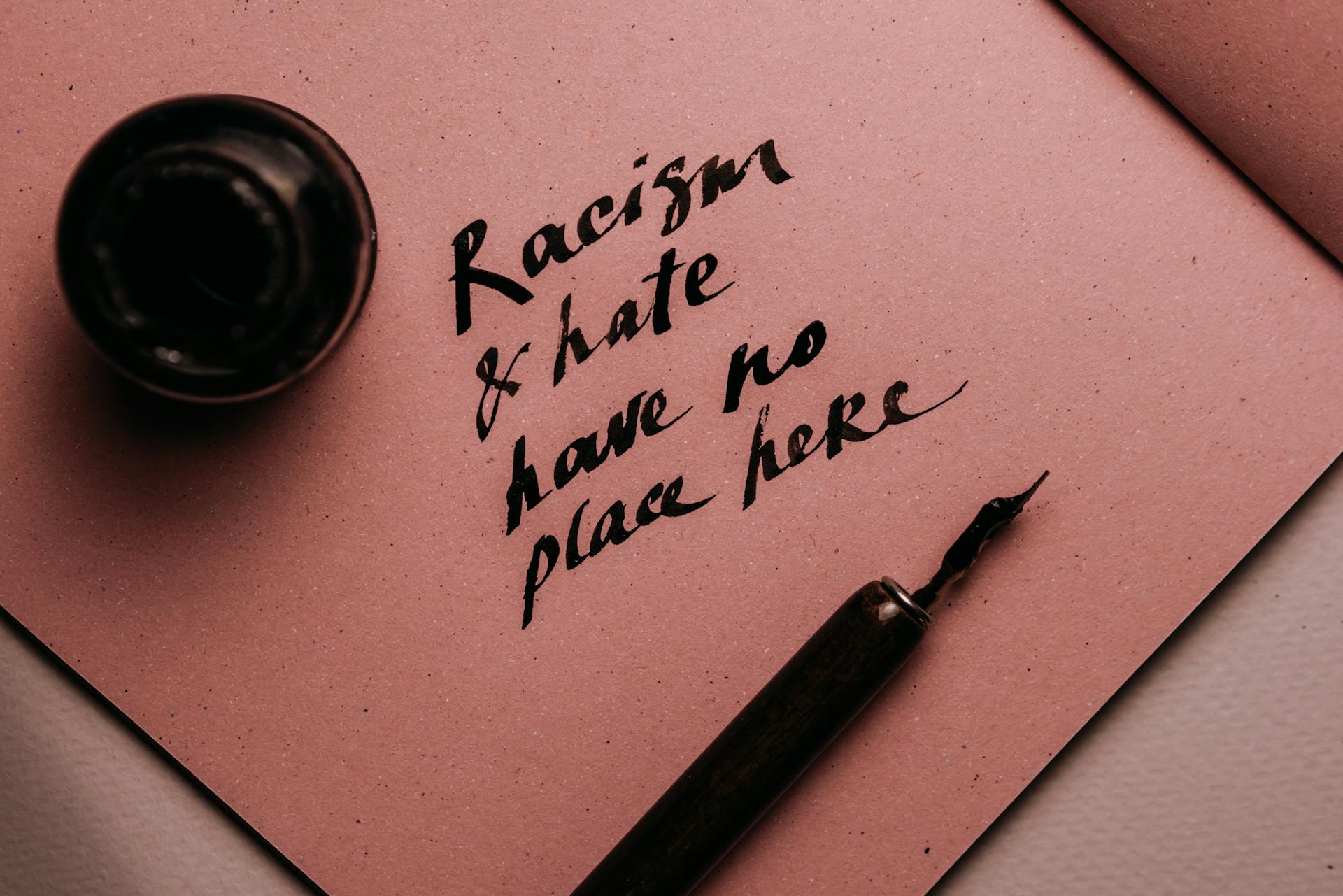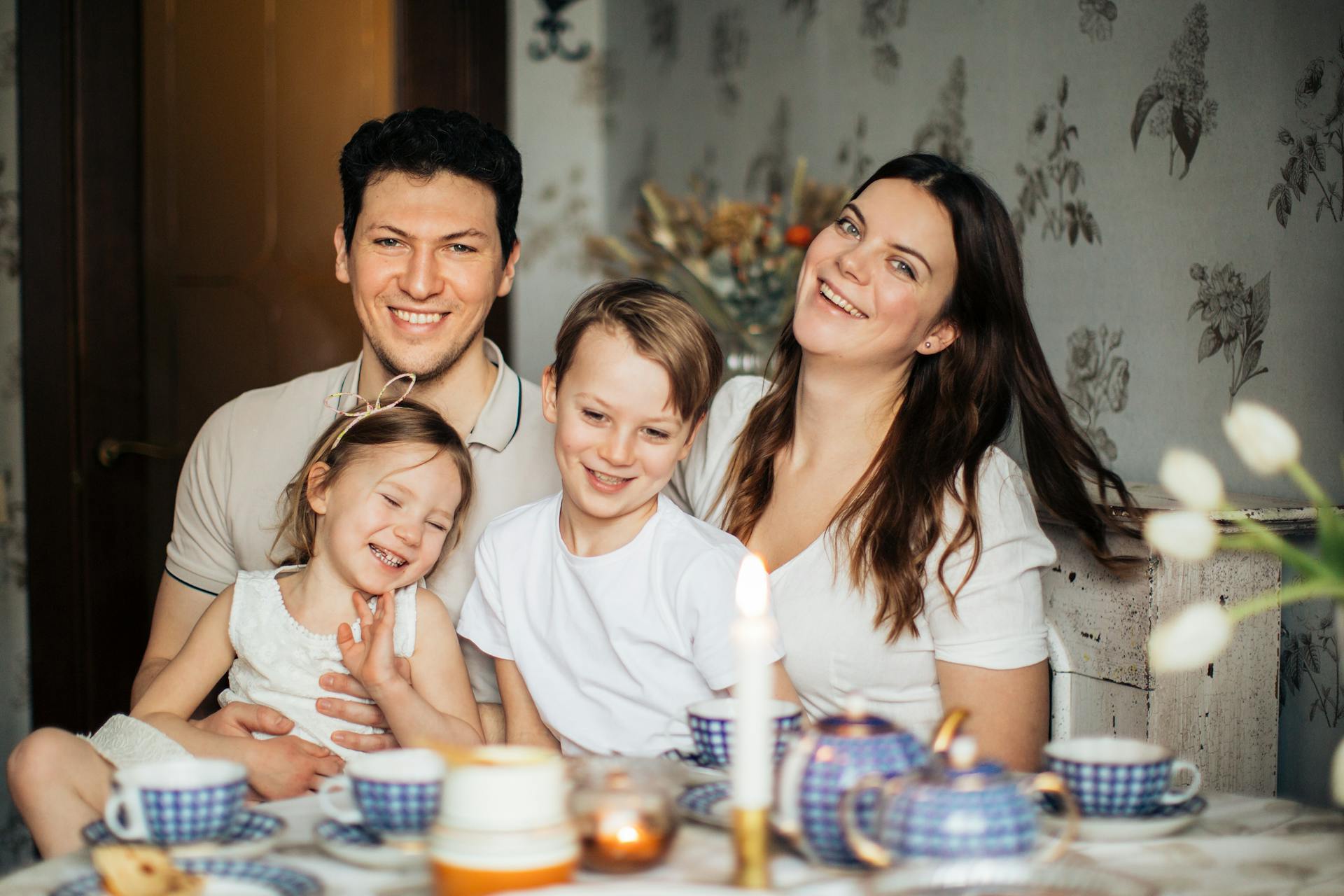
We've all been there. You're feeling overwhelmed by the daily grind, emotions are high and you can't help but vent your frustrations in the form of a thought-provoking question; "Why do I hate everyone?" It's an honest inquiry we've all asked ourselves at least once in our lifetime, and it's a difficult subject to get to grips with, especially when the people we despise appear closest to us.
Rather than seeking professional help or shying away from impersonal quizzes, why not turn your question into an activity and try a "Why Do I Hate Everyone Quiz"? These quizzes will uncover powerful psychological insights about yourself - both positive and negative. Taking this step might provide you with some tangible answers which could even motivate you turn these negative feelings around.
For example, let's say you take this type of quiz only to find out that deep down everyone has something annoying in them which you find unattractive such as arrogant behavior or betrayal; suddenly understanding this reason behind your hatred can bring some clarity and inner peace.
Plus, after every quiz comes insightful advice based on specific answers which pinpoints key areas of improvement that may be essential for personal success such as developing better relationships with those around us or understanding how our unhappiness really affects others in our lives; working on oneself is often the first step towards self-improvement.
So if the answer is “why do I hate everyone?” then taking a 'Why Do I Hate Everyone Quiz' could be one way for finding more meaningful resolution to angering issues we all face from time-to-time!
Why do I feel alienated from people?
If you're feeling alienated from people, it can be a difficult and isolating experience. You may feel lonely, disconnected, or misunderstood – all of which can add to a sense of alienation. But why do these feelings arise in the first place?
The answer could depend on many factors. It could be because of a particular set of circumstances that have left you feeling excluded or isolated in some way, or perhaps it’s more to do with life experiences that have caused you to become distrusting or uncomfortable around other people. Whatever is causing it, understanding those root causes can help you move forward.
It might also be helpful to take some time for yourself and focus on activities and hobbies that make you happy and help you forget about the feelings of alienation for awhile - anything from reading books alone in your room, going for long walks outside by yourself (while keeping safe!), learning a new skill online through an app/website such as DuoLingo etc., spending quality time with family members who know how to make you feel valued and loved... the possibilities are endless!
At the end of the day what matters most is nurturing your wellbeing by providing yourself with good self-care - both physical (eating nutritious food and getting plenty of restful sleep) as well as psychological (talking out your thoughts/feelings with understanding individuals). Recognizing that everyone feels alienated at times is also important - sometimes our mental health issues impact us so much more than we perceive others' experiences do. Once we accept ourselves vulnerably enough to seek out support where necessary - like speaking to therapists if relevant - we can connect better with ourselves first before seeking social connection again too if desired...
What drives my tendency to be competitive with others?
I believe that my tendency to be competitive with others is driven by a combination of personal attributes and external factors. For me, motivation plays an important role in driving my competitiveness. Whether it's trying to outperform others or simply reach a goal on my own, I have always been motivated by the challenge of succeeding.
Moreover, I have also found that being competitive with others can give me an opportunity to show off the skills I am good at - whether this is through sports or academics - which further drives up my competitiveness. Additionally, striving for excellence has become part of who I am; rather than just wanting to do better than someone else, there is an internal drive to constantly strive for self-improvement and success which strengthens the competition between myself and others.
External factors such as social media can also contribute greatly to how competitive we feel with other people. Actively engaging in activities online – particularly those where comparison between users are inevitable – can lead one’s personal motivation sliding into a more dreaded form of competition: a race where we are aiming to outshine someone else rather than focusing on our own journey towards growth and success. This type of competition often leads us down paths where the bigger picture gets blurred in favour
How can I better control my emotions when around others?
Whether you’re an introvert or extrovert, learning to control your emotions in social settings can be a challenge. When managing our reactions and feelings around other people, we must first try to understand why we are feeling the way we are. Knowing your triggers and recognizing patterns of behavior that might lead to certain emotional reactions can help you manage them better in the future.
Here are some tips on how to better control your emotions when around others:.
1. Take a Breather: Know when it's appropriate for you to pause before responding and use that time for reflection. This will help refocus yourself on the present moment, rather than getting lost in an emotion-filled tangent distracted by past memories or anticipation of what could happen next.
2. Own Your Feelings: It is okay to own your feelings; they do not define whoyou are but they may provide valuable insight into understanding yourself better. Onceconnected withyour feelings, don't be hesitantto express them openlyinconversations as long astheyare done respectfully and responsively-- this willhelpothers moldtheir context andspeechesaccordinglyand alsoserveas awarningforothersnot tousehurtingand aggressivewords during discussionswithyouinfutureencountersby cueingtheminto howsuch wordswill makeyouto feel hurtorangryetc..
Unapologetically expressinghonestemotionsinsteadofkeepingit bottledupinsideis healthyinallsocialcontextsand situationsallowingthosepartiesto buildtrustwitheachother basedon opencommunicationwithminimalguessinggamesofwhatwasmeantbywordsorsignalsthatwere exudedfrom eitherpariesduringdiscussions sparkingconflictsandspeakerrorintentionallyortakenthwronglyfromwhatwasreally meantatthetime it was said out loud!
3. Stay Present: When we find ourselves reacting negatively because of something someone else has said or done, step back from the situation for just a moment so that you can process it without being dragged into a spiral of negative energy which could potentially lead nowhere good from thereon out leaving both parties feeling like their time has been wastedbouncingaround without reaching anyconclusionor fulfillingany productivegoalsofcommunicationthat just supposedtobethetopicdueto largegroupsofoveractiveemotions.. Focusingon thepresentinsteadofruminatingonpastoftendifficult experiencecanallowyoutomakebetterchoicesaboutwhattosaynextinordertopromotesmooth communicationintheroomwheretheeventoccurringwhile alsoavoidingawkwardmomentsthatmightrisemore easilyif onesociallyperceives'losingcontrol'overthemselvesinthefaceofthemomentwithout taking solaceinthefaetthatitsjustapresentexperienceonly!
4. Communicate Respectfully: Understanding that everyone is different,and having patience during times of disagreement can de-escalate hurtful conversations more quickly. Try communicating your thoughts calmly with respect rather than placing blame or showing anger towards someone else—this will alleviate potential tension between individuals while still allowing everyone involved to get their point across effectively instead instigating an argumentative tone which only further restricts efficient implementations being made by those within same party consequentially causing further harm & damage due tononecompatiblemindsets. When unsure try analyzing yours aswellas theirsANDtakeaconsideredapproachtakingcaretonither side'sthoughts&expressionssteadilyrefrainingfromabruptconclusionsbackforthargumentsbrushingoff anysituationswhichcouldpotentiallyhightensocialtension Oroutcome unintentedadverseoutcomesdueunf
What is causing my low self-esteem?
Self-esteem is an important part of our lives, as it affects how we respond to different situations. Low self-esteem can manifest itself in many ways and may be the result of a number of factors, including negative self-talk, unrealistic expectations, or worrying about what others think. Exploring what is causing your low self-esteem and making efforts to address those issues can help you increase your sense of self worth and lead to a happier life.
Although it often seems like there's no explanation for our low self-esteem, most cases are rooted in past experiences that have shaped our current beliefs about ourselves. Whether these experiences were positive or negative plays an important role in determining how we view ourselves today. If you had more negative than positive occurrences growing up — such as being criticized by family members or peers – this will cause feelings that ultimately lead to lower self-esteem later on.
In exploring what is causing your low self-esteem further, it’s important to consider the underlying thoughts that are affecting how you view yourself. Are there certain thoughts or beliefs that you continually come back to? It’s likely these could be contributing factors behind why you feel this way toward yourself; writing them down can help put things into perspective so they don’t seem so overwhelming anymore.
Another factor here could be the environment around you — if people around demonstrate behaviors such as name calling themselves or harshly judging their own flaws on a regular basis – it might inspire feelings within yourself because continued exposure leads to its own kind of internalization (aka taking on these traits for yourself). Making sure that outer influences don’t become hostile sources information on how we should view ourselves is key in protecting our mental health!
Finally, recognizing the potential biological component at play when working through feeling low could be helpful too - if worries surrounding body image spark anxious reactions before situations such as social events then speaking with your doctor about possible medication options might help offset triggers and provide some relief while other methods used too build up resilience towards those aspects are also implemented!
Overall understanding why exactly one has developed such a condition with regards towards themselves is not always easy but acknowledging potential causes & learning new methods towards gaining greater peace within oneself can certainly make growing out from feeling quite deprived much easier over time!
What is the cause of my social anxiety?
Social anxiety is a difficult condition to live with, as it can impact one’s life in numerous ways. Though the source of social anxiety is unclear and likely complex, understanding some of its possible causes may help you find ways to manage the condition.
One common cause of social anxiety is fear of judgment. People can feel overwhelmed by a fear that they'll be judged negatively by their peers or society at large based on their appearance, beliefs, values or other qualities. They may become so consumed with this fear that interacting with others becomes decidedly uncomfortable – and sometimes even debilitating.
Another potential cause of social anxiety could be linked to experiences in childhood and past traumatic events. If people were subjected to negative criticism or ridicule during childhood, they might come to develop an aversion towards social settings out of fear that something similar will occur again in the future. Specifically for this reason, those who faced bullying or teasing as children may be particularly prone to experiencing social anxiety later in life; the memories associated with these events could have long-lasting effects on mental health and well-being.
It’s also possible for poor self-esteem and low self-confidence levels contribute to feelings of anxiousness when interacting socially; if someone doesn’t believe they are good enough or “lovable” then it stands to reason why navigating through a crowd could feel especially daunting for them mentally and emotionally speaking. Similarly individuals who struggle greatly with every day tasks due imposter syndrome–a type of feeling where someone believes everything which goes right is more attributed luck than skill – could equally suffer from mistrusting interactions outside their work environment due how incredibly taxing it feels having constant doubt around ones credibility when talking casually with people not related directly related job dynamics
Lastly but arguably not least understanding genetics plays a considerable part into perpetuating anxieties towards interpersonal relationships.Our inherited traits helping us feel comfortable within certain atmospheres thus finding relaxation talking smaller clusters both at work places but more appreciable homesettings would offer an individual an enviable sense solace which otherwise wouldn't have been provided if staying put amongst larger groups congregations
In conclusion there appears too multiple plausible aspects connected concurrently in order diagnose evaluate precise diagnoses concerningones respective root causes resulting development trammatic anxieties during types demands stressors found encounters ongoing daily lives.
How can I better understand why I don't seem to fit in?
If you're asking yourself why you don't seem to fit in, it can be helpful to understand that everyone experiences this feeling of displacement at some point or the other in their life. We sometimes feel like we don't quite fit into our current environment because the world can be an amazingly diverse tapestry of different beliefs and outlooks, many of them conflicting with our own.
If this is a common thought process for you, understanding and accepting that these feelings are very normal is helpful. Knowing that your experience isn’t foreign and abnormal can often help bring perspective. Even if everyone around us shares certain ideas or concepts, there will never be full synchronicity between two people; this holds true even between two people who agree on almost everything! It's important to embrace your unique qualities and differences as they pave the road for what makes you special.
By reflecting upon why it might be difficult for you to slots within specific social situations or groups, try evaluating whether those expectations are actually geared towards individuals like yourself? Are there aspects of yourself that may have been neglected within those circles? Do a personal assessment on whether these reflections really align with what matters deeply to personally; because then being part of them just might not have ever been meant for you. And that's okay! If after self analysis, you find that particular environment isn’t conducive or supportive towards fulfilling your needs - no matter how painful- moving away from it would likely make sense in helping understand why it didn't work out in the first place
Our weaknesses should not dictate our worth!
Find overlapping interests/values where possible rather than aggressive alignment across values – which rarely align themselves perfectly -- by focusing more on mutual respect instead trying too hard making sure everything lines up perfectly: entering new situations with curiosity instead assuming sameness works well too! Ultimately understanding where we truly Identify as an individual helps see ourselves from beyond societal constraints as well as strengthen sense individuality required when getting used justifications/labels attached around fitting in.At core coming at recognizing depths uniqueness offer brings about being better accurate interpretation seeking fit makes easy trust intuition whilst helping figure what may actually success originating source deeper connection wishing associate adaptable shape shifting sociocultural landscapes linked forming larger societal family tough times sticking things woven blueprint participating collective act safely abiding group constitution point desired end fairness justice wrap progressive ideology manifesting form allegiance manifests tribe solidarity
Sources
- https://www.playbuzz.com/popbuzz/quiz-how-much-do-you-hate-people-really
- https://www.buzzfeed.com/saadmatheus/why-do-people-kind-of-hate-you
- https://www.psychologytoday.com/us/blog/synapses-sanity-society/201910/what-does-alienation-feel
- https://www.proprofs.com/quiz-school/story.php?title=1dq-why-do-i-hate-everyone
- https://www.allthetests.com/personality-tests/how-people-see-me/quiz31/1404880389/why-do-some-people-hate-me
- https://www.buzzfeed.com/gretaalvarez/do-you-hate-people
- https://scuffedentertainment.com/why-do-people-hate-me-quiz/
- https://www.proprofs.com/quiz-school/story.php?title=1dq-why-do-i-hate-people
- https://www.healthline.com/health/alienation
- https://en.wikipedia.org/wiki/Social_alienation
- https://www.sparknotes.com/blog/quiz-do-you-hate-everyone/
- https://www.quotev.com/quiz/13726709/Does-Everyone-Hate-You
- https://liveboldandbloom.com/12/relationships/i-dont-belong
- https://www.cgaa.org/articles/why-do-i-hate-everyone-quiz
- https://medium.com/the-mission/11-ways-to-lose-friends-alienate-people-61702468ec25
Featured Images: pexels.com


